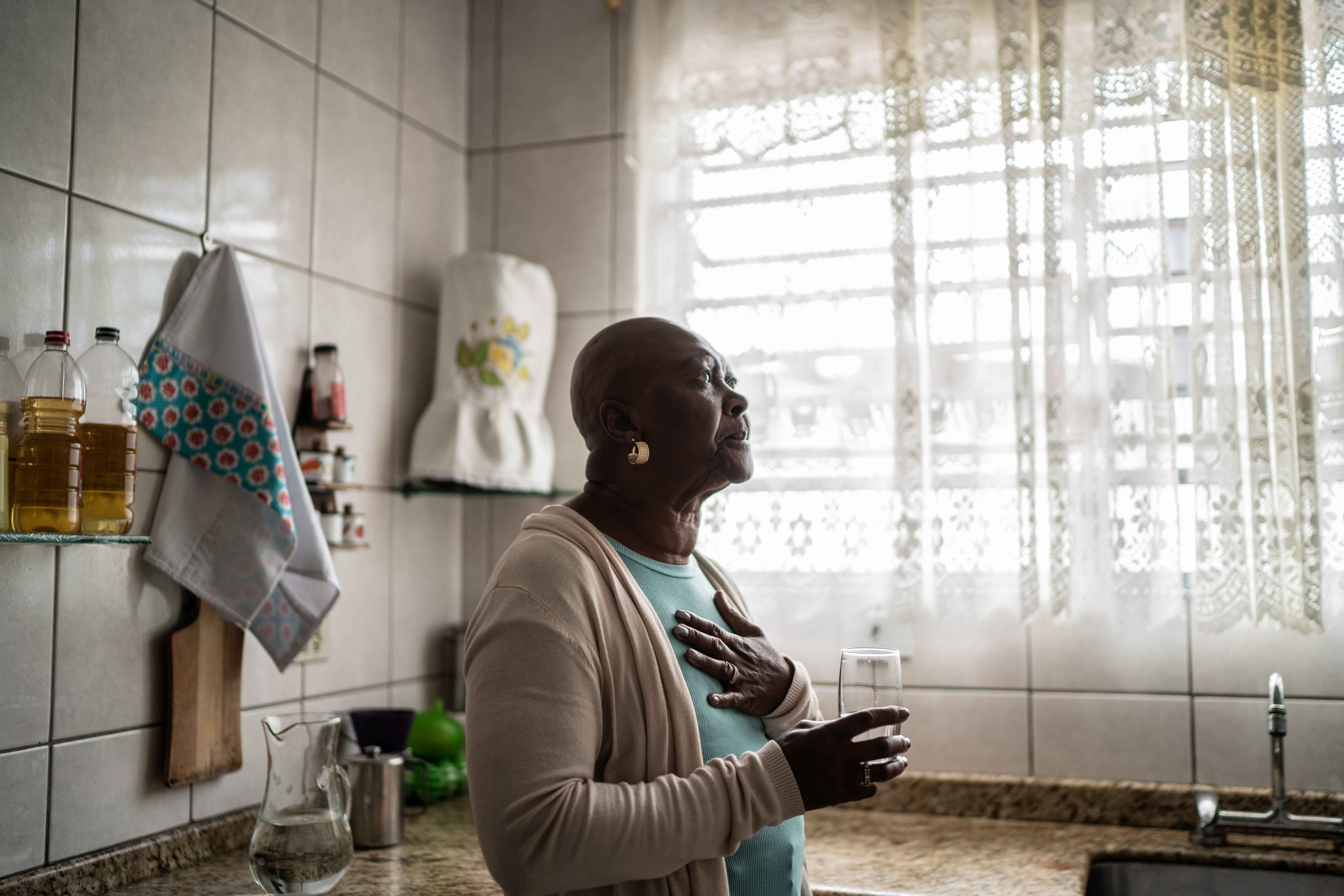Bringing Data Out of the Back Office to Address Social Determinants of Health
Some communities are disproportionately impacted by chronic kidney disease because of barriers such as poverty, lack of education, and systemic racism that make it difficult to access care. Using data, we can identify vulnerable populations and target interventions.
tags

Social determinants of health (SDoH) are non-medical factors that can impact a person's health and quality of life. They include the conditions in which people are born, grow, work, live, and age, as well as the broader systems that shape our everyday lives. To reduce the impact of chronic diseases such as chronic kidney disease (CKD), we need to find and address the root causes of these long-term illnesses, many of which can be attributed to SDoH.
SDoH contribute to health disparities in many ways. For example, if a person is not able to buy healthy food at a nearby store, then it will be hard for them to eat well. Or if a person doesn’t have access to transportation because of socio-economic or geographic factors, they may not be able to attend provider appointments or pick up prescriptions.
Racial disparities in kidney disease are well documented. Black Americans are nearly four times more likely to have kidney failure than white Americans, and Hispanics are almost twice as likely.1 Black and Hispanic populations also have a higher likelihood of experiencing complications and adverse outcomes.
Many chronic diseases including diabetes, heart disease, asthma, and cancer follow the same pattern among these populations. Increasingly, research is revealing that disparities in health outcomes are closely linked to social and economic history and circumstances that lead to negative health consequences.
Using Data to Address SDoH and Drive Health Equity
Our value-based kidney care clinical model uses an interdisciplinary care team approach to address each patient’s personal needs, from medical treatment to addressing SDoH such as transportation and support in the home. Delivering on our mission of reimagining kidney care and helping our patients live their best lives requires robust analytics that have the power to drive change.
Interwell’s position at the intersection of providers and payers gives us access to data across many different touch points, providing actionable insights that are not available by simply looking at patient charts or individual insurance claims. We have relationships with thousands of nephrology providers, as well as strategic partnerships with more than 2,600 dialysis centers and multiple national payers. These relationships give us the ability to leverage data, including select data from Acumen Epic Connect, the most widely used nephrology-specific electronic health record (EHR), to offer unmatched access to accurate, timely insights that are critical to informing optimal patient care.
This data helps power Interwell’s predictive models, which were designed from the beginning with health equity at the forefront. When possible, we collect SDoH data such as food insecurity, housing instability, and transportation needs to identify and support patients who need us most.
It can be challenging for patients to focus on improving their kidney health when they are struggling to meet basic needs such as secure housing, transportation, and access to healthy food. Our data-driven decision-making enables us to allocate resources effectively, target interventions where they're most needed, and measure the impact of our efforts. These informed interventions contribute to better outcomes and quality of life and can lead to cost savings.
“Our value-based kidney care clinical model uses an interdisciplinary care team approach to address each patient’s personal needs, from medical treatment to addressing SDoH such as transportation and support in the home.”
Improving Data Sharing and Standardization to Improve Health Outcomes for All
To improve efforts to address SDoH and reduce health disparities, the healthcare community needs to be able to collect, store, and share accurate, comprehensive patient data. While most payer and provider organizations have realized the clinical and financial benefits of identifying and actively managing SDoH, improved data exchange across the healthcare ecosystem is needed.
Establishing common data elements, interoperability standards, and protocols for secure data transfers are critical to streamlining and optimizing data exchange. Incentives must be aligned to encourage and accelerate this move toward frictionless and secure health data sharing.
Healthcare stakeholders need to work together in the spirit of a shared commitment to data quality, transparency, and privacy. The more data people have access to, the more powerful predictive modeling becomes and the more we can personalize care and improve outcomes.
I have worked at high levels in operations to help providers and payers improve quality and risk adjustment. I know the importance of effectively, accurately, and securely gathering, using, and sharing data. This aspect of healthcare delivery is too often relegated to the back office, but it needs to be central to all stakeholders’ strategy and planning if we are to accelerate true healthcare transformation.
By harnessing the power of data, we can identify vulnerable populations, tailor interventions, and ultimately improve health outcomes for all. It’s important that all healthcare stakeholders continue to seek better and more impactful ways to collaborate, innovate, and leverage data-driven insights to build healthier communities.
Notes
1. Health Disparities. National Kidney Foundation.
https://www.kidney.org/advocacy/legislative-priorities/health-disparities

Naz Urooj
Vice President, Population Health, Quality, and Risk Adjustment
Naz leads Interwell Health's population health, quality, and risk adjustment operations supporting payer and government programs. She has more than 12 years of experience in risk adjustment and quality, working with provider-led, managed care, and payer organizations. Prior to her role at Interwell, Naz held prominent leadership roles managing large operations with Fresenius Medical Care, Optum Care, Evolent Health, and American Express. She holds a BS from Guilford College and an MBA from the University of Colorado Springs.